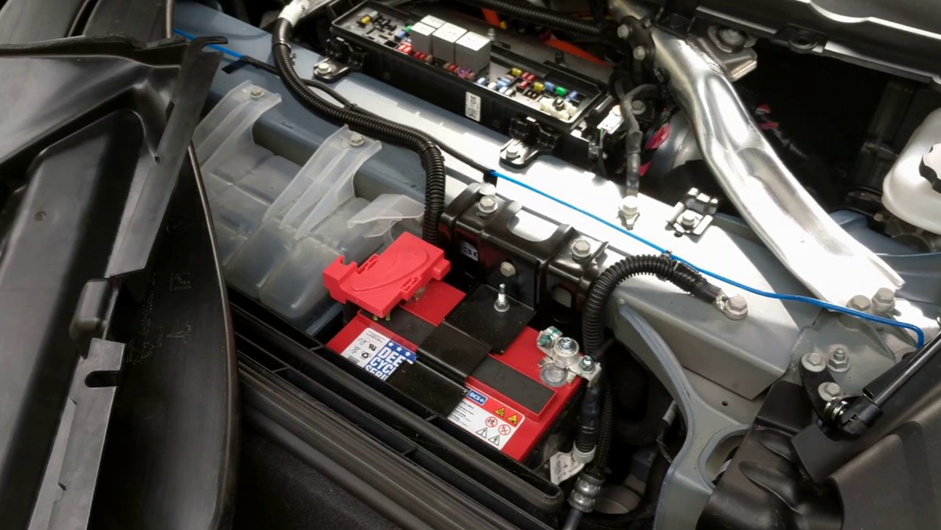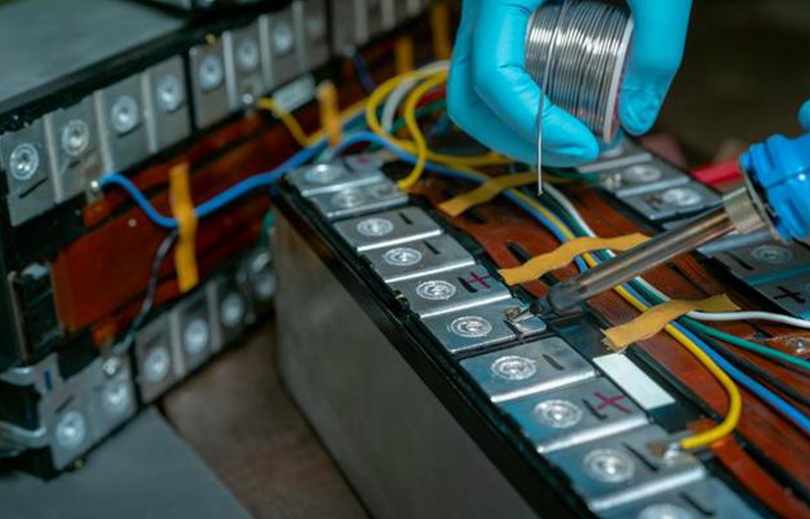The Rise and Evolution of Lithium Batteries
The development of lithium batteries has been a game-changer in the world of electronics, powering everything from our smartphones to electric cars. But where did this technology come from, and how has it evolved over time?
The roots of lithium battery technology can be traced back to the 1970s, when researchers at the Exxon Corporation began experimenting with lithium as a potential battery material. They discovered that lithium had a high energy density, meaning it could store a lot of power relative to its size and weight. This made it an attractive candidate for portable electronics, which were becoming increasingly popular at the time.
However, early attempts to create commercial lithium batteries were hampered by safety concerns. Lithium is an extremely reactive element, and in its pure form, it can catch fire or even explode when exposed to air or water. To make matters worse, the first lithium batteries used a highly flammable liquid electrolyte, which made them even more prone to thermal runaway.
It wasn’t until the 1990s that lithium batteries began to hit the mainstream. One key breakthrough was the development of a solid polymer electrolyte, which was much safer than the liquid electrolytes used in earlier designs. This allowed lithium batteries to be used in a wider range of applications, from mobile phones and laptops to medical devices and military equipment.
Another important development was the use of cobalt oxide as the cathode material in lithium-ion batteries. This material allowed for higher energy densities and longer cycle life than previous designs, making lithium batteries even more attractive for consumer electronics and other applications.
In recent years, lithium batteries have continued to evolve and improve. One major trend has been the shift towards using lithium-iron-phosphate (LFP) cathodes, which are less expensive and safer than cobalt-based cathodes. LFP batteries are now widely used in electric vehicles and energy storage systems, as well as in many other applications.

Another area of innovation has been the development of solid-state lithium batteries, which use a solid electrolyte instead of a liquid or polymer electrolyte. Solid-state batteries promise even higher energy densities and improved safety, although they are still in the early stages of development and commercialization.
Overall, the rise and evolution of lithium batteries has been a remarkable success story, driven by decades of research and innovation. Today, these batteries are an essential component of modern life, powering our devices and helping to drive the transition towards a more sustainable, low-carbon energy system.
-
 In today's technologically advanced world, industrial power products batteries play a crucial role in powering the backbone of modern industries. These batteries are not only essential for providing a reliable source of power but also contribute to enhancing efficiency, productivity, and sustainability. Industrial power products batteries are specifically designed to meet the demanding power needs of various industries, including...Կարդալ ավելին
In today's technologically advanced world, industrial power products batteries play a crucial role in powering the backbone of modern industries. These batteries are not only essential for providing a reliable source of power but also contribute to enhancing efficiency, productivity, and sustainability. Industrial power products batteries are specifically designed to meet the demanding power needs of various industries, including...Կարդալ ավելին -
 When it comes to powering your marine vessel, there is no room for compromise. Whether you enjoy a leisurely day out on the water or embark on thrilling adventures, having a reliable and robust starting battery is essential. A marine starting battery is designed to provide the necessary power and performance to start your engine and keep it running smoothly...Կարդալ ավելին
When it comes to powering your marine vessel, there is no room for compromise. Whether you enjoy a leisurely day out on the water or embark on thrilling adventures, having a reliable and robust starting battery is essential. A marine starting battery is designed to provide the necessary power and performance to start your engine and keep it running smoothly...Կարդալ ավելին -
 Power outages and emergencies can happen at any time, leaving you without access to essential appliances and devices. In such situations, having an emergency starter battery can make all the difference. Whether it's a natural disaster, a power outage, or a car breakdown, an emergency starter battery can provide you with reliable power when you need it the most. ...Կարդալ ավելին
Power outages and emergencies can happen at any time, leaving you without access to essential appliances and devices. In such situations, having an emergency starter battery can make all the difference. Whether it's a natural disaster, a power outage, or a car breakdown, an emergency starter battery can provide you with reliable power when you need it the most. ...Կարդալ ավելին -
 As the world becomes more reliant on technology, the need for reliable power sources continues to grow. For those who require long-term power solutions, the high-capacity 12V LiFePO4 battery is an excellent option. With a capacity of 100Ah, this battery provides ample energy to power a variety of devices and applications. LiFePO4 batteries are a type of lithium-ion battery...Կարդալ ավելին
As the world becomes more reliant on technology, the need for reliable power sources continues to grow. For those who require long-term power solutions, the high-capacity 12V LiFePO4 battery is an excellent option. With a capacity of 100Ah, this battery provides ample energy to power a variety of devices and applications. LiFePO4 batteries are a type of lithium-ion battery...Կարդալ ավելին -
 Introduction In recent years, there has been a growing demand for efficient and reliable power sources for various applications. One technology that has gained considerable attention is the Lithium Iron Phosphate (LiFePO4) 48V battery. This type of battery offers significant advantages over traditional lead-acid batteries, making it a preferred choice for many industries and sectors. In this article, we...Կարդալ ավելին
Introduction In recent years, there has been a growing demand for efficient and reliable power sources for various applications. One technology that has gained considerable attention is the Lithium Iron Phosphate (LiFePO4) 48V battery. This type of battery offers significant advantages over traditional lead-acid batteries, making it a preferred choice for many industries and sectors. In this article, we...Կարդալ ավելին -
 LiFePO4 starter batteries are becoming increasingly popular in the automotive industry as they provide several advantages over traditional lead-acid batteries. LiFePO4 batteries are a type of lithium-ion battery that is specifically designed for use as a starter battery in vehicles. One of the main advantages of LiFePO4 starter batteries is their higher energy density. This means that they can...Կարդալ ավելին
LiFePO4 starter batteries are becoming increasingly popular in the automotive industry as they provide several advantages over traditional lead-acid batteries. LiFePO4 batteries are a type of lithium-ion battery that is specifically designed for use as a starter battery in vehicles. One of the main advantages of LiFePO4 starter batteries is their higher energy density. This means that they can...Կարդալ ավելին -
 When it comes to enjoying a day out on the water, having a reliable boat is crucial. One key component that ensures a smooth start-up is the cranking battery. This essential part provides the necessary power to start the boat's engine and get you sailing in no time. In this article, we will explore the importance of a cranking battery...Կարդալ ավելին
When it comes to enjoying a day out on the water, having a reliable boat is crucial. One key component that ensures a smooth start-up is the cranking battery. This essential part provides the necessary power to start the boat's engine and get you sailing in no time. In this article, we will explore the importance of a cranking battery...Կարդալ ավելին

